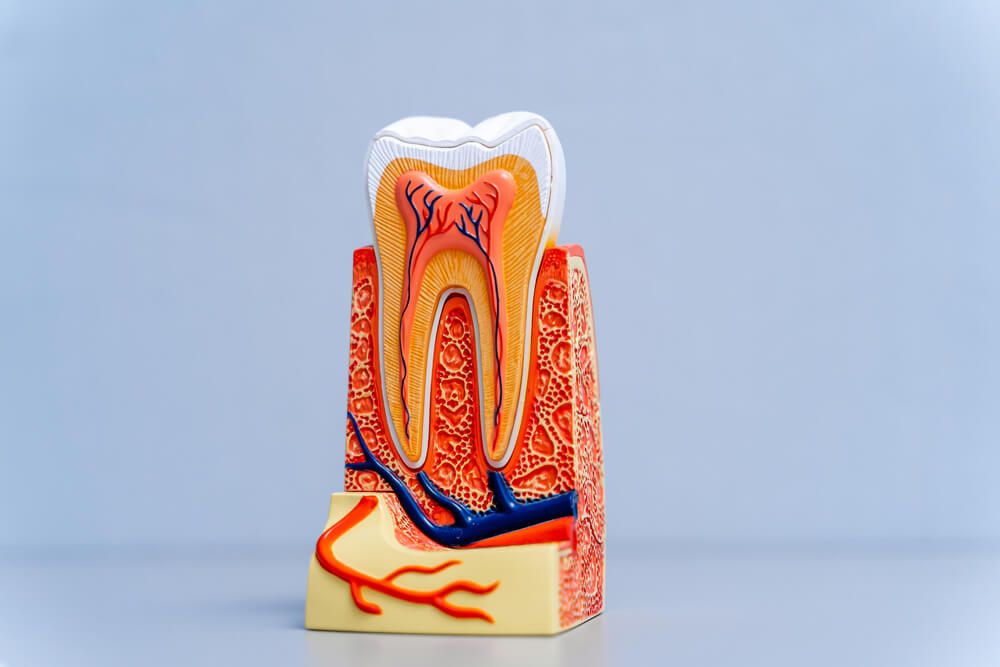Root Canal Therapy: Preserving Your Natural Smile
Hearing the term “root canal” might make you feel uneasy, but root canal therapy is a common and effective procedure designed to save a severely damaged or infected tooth. At NE Portland Dental, we offer root canal therapy to relieve pain, eliminate infection, and restore the health of your tooth. In this blog, we’ll explore what root canal therapy involves, its benefits, the procedure, and answer some frequently asked questions.
What Is Root Canal Therapy?
Root canal therapy is a dental procedure that involves removing the infected or damaged pulp (the soft tissue inside the tooth) and sealing the tooth to prevent further infection. The pulp contains nerves, blood vessels, and connective tissue, and when it becomes infected due to decay, trauma, or cracks, it can cause severe pain and swelling. Root canal therapy eliminates the infection and saves the tooth from extraction.
Why Root Canal Therapy Is Necessary
If left untreated, an infected tooth can lead to more serious issues, such as abscesses, bone loss, and the spread of infection to other areas of the body. Root canal therapy not only alleviates pain but also preserves your natural tooth, allowing you to maintain your smile and avoid the need for more complex dental treatments.
Benefits of Root Canal Therapy
Root canal therapy offers several significant benefits, especially when it comes to preserving your oral health. Here are some key advantages:
1. Pain Relief
One of the primary reasons patients seek root canal therapy is to relieve the pain caused by an infected or damaged tooth. The procedure removes the source of the pain, allowing you to return to your normal activities without discomfort.
2. Preservation of Natural Tooth
Root canal therapy allows you to keep your natural tooth, which is always preferable to extraction. Preserving your tooth helps maintain proper chewing function and prevents other teeth from shifting out of alignment.
3. Prevention of Infection Spread
By removing the infected pulp, root canal therapy prevents the spread of infection to other teeth and surrounding tissues. This helps protect your overall oral health and reduces the risk of more serious complications.
4. Aesthetically Pleasing Results
After the root canal procedure, the tooth is usually restored with a dental crown or filling, which strengthens the tooth and restores its appearance. This ensures that your smile remains natural and attractive.
5. Cost-Effective Solution
While root canal therapy may seem costly upfront, it is often more cost-effective in the long run compared to extraction and replacement options such as dental implants or bridges.
The Root Canal Procedure
Root canal therapy is a straightforward procedure that typically requires one or two visits to our office. Here’s what you can expect during the process:
1. Initial Consultation and Examination
Your journey to a pain-free smile begins with a consultation at NE Portland Dental. During this visit, Dr. John J Park will examine your tooth, take X-rays, and determine if root canal therapy is necessary. If the procedure is recommended, we will explain the steps involved and answer any questions you may have.
2. Anesthesia and Tooth Isolation
Before the procedure begins, local anesthesia is administered to numb the area around the affected tooth. Once the area is numb, a rubber dam is placed around the tooth to keep it dry and free from saliva during the procedure.
3. Removal of Infected Pulp
Dr. John J Park will create a small opening in the crown of the tooth to access the pulp chamber and root canals. The infected or damaged pulp is carefully removed using specialized instruments, and the canals are cleaned and shaped to prepare them for filling.
4. Filling and Sealing the Tooth
Once the canals are cleaned, they are filled with a biocompatible material called gutta-percha. The canals are then sealed to prevent future infection. In some cases, a temporary filling may be placed until a permanent restoration is completed.
5. Restoration of the Tooth
After the root canal is completed, the tooth is usually restored with a dental crown or filling to provide strength and protection. This final step is crucial for ensuring the longevity of the tooth and restoring its function.
Frequently Asked Questions (FAQs) About Root Canal Therapy
Is root canal therapy painful?
Root canal therapy is generally not painful. Modern techniques and local anesthesia ensure that the procedure is as comfortable as possible. Most patients report that the procedure itself is no more uncomfortable than getting a filling. Any discomfort you may feel afterward can usually be managed with over-the-counter pain relievers.
How long does a root canal take?
The length of the procedure varies depending on the complexity of the case, but most root canals can be completed in one to two visits. Each visit typically lasts about 60 to 90 minutes.
What can I expect after a root canal?
After the procedure, it’s normal to experience some sensitivity or mild discomfort for a few days. This can be managed with over-the-counter pain medications. It’s important to follow Dr. John J Park’s aftercare instructions and avoid chewing on the treated tooth until it has been fully restored.
How successful is root canal therapy?
Root canal therapy has a high success rate, with many treated teeth lasting a lifetime with proper care. Regular dental check-ups and good oral hygiene are essential for maintaining the health of the treated tooth.
Can a tooth that has had a root canal get infected again?
While rare, it is possible for a tooth that has undergone root canal therapy to become re-infected. This can occur if the tooth is not properly sealed or if there is decay under the crown. Regular dental visits and good oral hygiene can help prevent this.
Will I need a crown after a root canal?
In most cases, a crown is recommended after root canal therapy to protect the tooth from fracture and restore its function. Dr. John J Park will discuss the best restoration option for your specific case.
Conclusion
Root canal therapy is a highly effective way to save a damaged or infected tooth while relieving pain and preserving your natural smile. At NE Portland Dental in Portland, Oregon, Dr. John J Park and his team are dedicated to providing comfortable and precise root canal treatments tailored to your needs. If you’re experiencing tooth pain or suspect you may need a root canal, call us today at (503) 284-2893 to schedule a consultation and protect your oral health.






